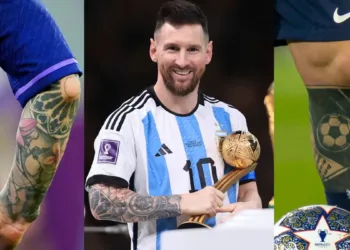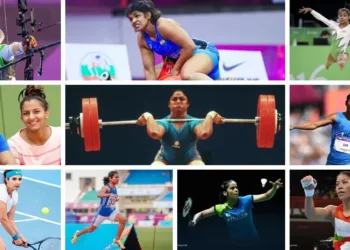South Africa enter the 2025 ICC Champions Trophy with a blend of optimism and caution. On paper, the squad looks balanced, boasting an array of in-form batters, versatile allrounders, potent seamers, and skillful spinners.

Yet, on-field performances haven’t always reflected that promise. With a less-than-ideal record since the 2023 World Cup, the Proteas face a pivotal challenge: translating potential into results in Pakistan.
Table of Contents
Recent Form: A Rollercoaster Ride
South Africa’s ODI form leading up to the tournament has been, in a word, poor. Since the conclusion of the 2023 World Cup, they’ve won just 4 out of 14 matches. A string of six consecutive losses and three bilateral series defeats—including their first home whitewash—underscore their recent struggles.

This dip stems largely from scheduling conflicts and experimentation with new players rather than the core squad’s actual capabilities. Despite this, white-ball coach Rob Walter remains confident in his senior players’ ability to deliver on the big stage, as evidenced by their strong showings in recent ICC events.
Strengths: Experience Meets Versatility
South Africa’s strength lies in their balanced squad composition. Their batting line-up, anchored by seasoned names like Temba Bavuma, Rassie van der Dussen, and David Miller, provides stability. The middle order’s dynamism, led by Heinrich Klaasen—currently in stellar form—ensures momentum during crucial overs.

The allrounder department is another asset, with Marco Jansen offering seam bowling and valuable lower-order runs. In the bowling attack, Kagiso Rabada spearheads the pace battery, while spinners Keshav Maharaj and Tabraiz Shamsi offer variety and control. Notably, the team’s familiarity with Pakistan’s conditions—gained during a recent tri-series and their acclimatisation period in Karachi—could prove vital.
Weaknesses: Inconsistency and Lack of Recent Cohesion
Despite their strengths, South Africa’s glaring weakness is inconsistency. Their inability to field a settled XI due to scheduling conflicts has hindered chemistry and match sharpness.

A six-match losing streak underscores this issue. Their middle-order collapses under pressure and lapses in death-over bowling have been costly. Additionally, recent losses to Pakistan during the tri-series may raise psychological barriers in crucial games.
Group Stage Fixtures
- Feb 21: vs Afghanistan – Karachi
- Feb 25: vs Australia – Rawalpindi
- Mar 1: vs England – Karachi

With England enduring form issues and Australia missing key players, South Africa will eye the semi-finals as a realistic target—provided they avoid any slip-ups against Afghanistan.
South Africa’s Best XI
- Temba Bavuma (c)
- Ryan Rickelton
- Rassie van der Dussen
- Aiden Markram
- Heinrich Klaasen (wk)
- David Miller
- Marco Jansen
- Keshav Maharaj
- Kagiso Rabada
- Lungi Ngidi
- Tabraiz Shamsi
Bench: Tony de Zorzi, Tristan Stubbs, Corbin Bosch, Wiaan Mulder
Players to Watch: Potential Game-Changers
One of South Africa’s most dangerous middle-order batters, Heinrich Klaasen is enjoying the form of his life. With four scores of eighty-plus in his last five ODIs, all against Pakistan, he has emerged as a vital cog in the Proteas’ batting lineup.

Klaasen’s ability to shift gears seamlessly and accelerate in the middle overs makes him a game-changer. His quick-scoring prowess, especially against spin, will be pivotal in subcontinental conditions.
Lungi Ngidi’s mix of pace, bounce, and variations provides South Africa with a reliable strike bowler, particularly in the powerplay and death overs.

Although recent form has been inconsistent, Ngidi’s experience in big tournaments and his ability to extract movement off the pitch make him a key player. He will be crucial in containing opposition batters and providing breakthroughs at vital junctures.
As South Africa’s frontline spinner, Tabraiz Shamsi’s wrist spin offers variety and unpredictability. His experience in Pakistani conditions, coupled with the ability to turn the ball both ways, could trouble batters unfamiliar with his style.

Shamsi’s role in the middle overs will be crucial in controlling the run rate and picking up crucial wickets.
A dynamic seam-bowling all-rounder, Marco Jansen brings balance to the squad. With his ability to generate bounce and swing the ball, he poses a threat with the new ball.

Additionally, his lower-order hitting ability provides South Africa with depth in both departments. Jansen’s versatility will be vital, especially in tight matches.
The spearhead of the Proteas pace attack, Kagiso Rabada’s experience in big tournaments is invaluable. Known for his ability to pick up crucial wickets at any stage of the innings, Rabada’s form will be central to South Africa’s hopes.

His pace and accuracy, especially in Pakistani conditions, make him a constant threat to opposition batters.
Champions Trophy History
South Africa’s history with the Champions Trophy is bittersweet. They won the inaugural 1998 edition but have since flattered to deceive—reaching semi-finals in 2000, 2002, 2006, and 2013, while suffering early exits in 2004, 2009 (on home soil), and 2017. The quest for a second title remains elusive, adding pressure to this year’s campaign.
Can the Proteas Deliver?
South Africa’s Champions Trophy journey hinges on two factors: rediscovering form and capitalizing on their squad’s balance. With experienced campaigners and promising youngsters, they have the tools to challenge the best.

However, overcoming recent inconsistencies and delivering under pressure will determine how far they go. In a group where semi-final qualification is within reach, the Proteas will look to shed past baggage and rewrite their Champions Trophy narrative.
FAQs
How has South Africa performed in recent ODIs ahead of the Champions Trophy?
South Africa has struggled, winning only four of their last 14 ODIs since the 2023 World Cup, with six consecutive losses leading into the Champions Trophy.
Who are the key players to watch for South Africa in the Champions Trophy?
Heinrich Klaasen, Lungi Ngidi, and Tabraiz Shamsi are crucial, with Klaasen’s explosive batting form and Ngidi-Shamsi’s importance in the bowling attack.
What are South Africa’s biggest strengths going into the tournament?
A balanced squad with an in-form batting order, three quality all-rounders, multiple spin options, and experienced pace bowlers form South Africa’s core strengths.
What could be South Africa’s biggest weakness in the Champions Trophy?
Lack of recent match practice with a full-strength squad and inconsistent performances in bilateral series raise concerns about their match readiness.
What is South Africa’s Champions Trophy history?
South Africa won the inaugural tournament in 1998 and has since reached the semi-finals four times, but failed to progress beyond the group stage in 2017.








